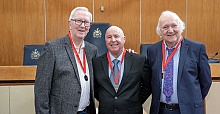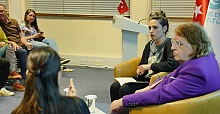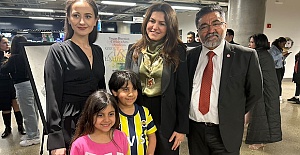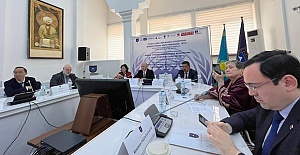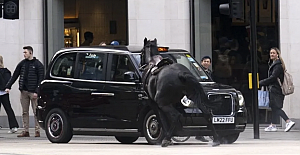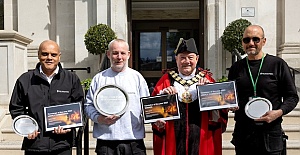Iran has said it supports the UN special envoy Kofi Annan’s Peace Plan for Syria, which is a welcome development and highlights the fact that any workable settlement may only be possible with Iran’s active diplomatic engagement. Tehran has long been Bashar al-Assad’s closest ally and one of the reasons it was able to endorse the Annan Plan was that that does not call for the removal of Assad, even if that is what many Syrians and Western countries, including Turkey, would prefer. So far, the Assad regime has remained deaf to pleas to end the assaults that have cost thouands of civilian lives as well as fuelling an inevitable armed opposition. But if Assad will listen to anyone, it would be the Iranians. And there is a wider point at stake here. Iran historically was a major regional power, indeed once the centre of a great empire. Recently, it has been trying to reassert its influence, not only in Iraq, which now has a Shiite-led government, but more widely. However, the policy of Washington and the EU — not to mention Israel — has been to isolate Iran and indeed subject it to punitive sanctions, because of the country’s nuclear programme, which may or may not be working towards the production of a nuclear weapons capability, according to who you believe. Certainly Iran’s Gulf neighbours don’t want to see a nuclear-armed Iran and two of them — Bahrain and Qatar — play host to US military forces. However, most of the Arab states in the Gulf are nonetheless engaging with Tehran, as they recognise that whatever differences they may have with the current government there, engagement is more likely to produce a modus vivendi than belligerency. This is a lesson the West could usefully learn. Of course there are many aspects of the Islamic Republic which leave Western governments uncomfortable, not least regarding human rights and President Ahmadinejad’s comments about the Holocaust, but that should not blind people to the fact that through engagement it is possible to work with countries which have totally different political systems or religious beliefs towards achieving common aims.
Jonathan is a freelance writer, lecturer and broadcaster on international affairs. For seven years, he was based in Brussels, initially for Reuters, and now writes mainly for the BBC and The Guardian. He has written a dozen non-fiction books, including volumes on Brussels and London. He also lectures part-time at London University’s School of Oriental and African Studies.
Jonathan has served as a London Borough Councillor (in Bromley) and fought three parliamentary elections. But the European Parliament has always been his ultimate goal. He has been fighting Euro-campaigns ever since the first direct elections to the European Parliament were held, and in 2004, came within a whisker of becoming an MEP for London. He’s determined to make it this time!
Iran's active diplomatic engagement
Iran has said it supports the UN special envoy Kofi Annan’s Peace Plan for Syria
13 Nisan 2012 Cuma 09:57
reads.




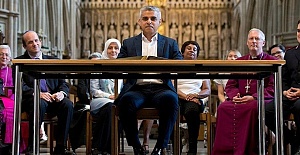 The candidates vying to be the next London mayor
The candidates vying to be the next London mayor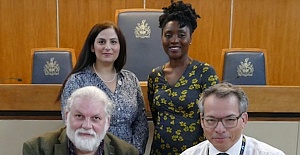 Enfield Council commits to anti-racism and diversity pledge
Enfield Council commits to anti-racism and diversity pledge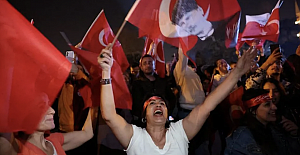 President Erdogan promised supporters his party would learn its lessons from the defeat
President Erdogan promised supporters his party would learn its lessons from the defeat Mayor of London and London Assembly elections
Mayor of London and London Assembly elections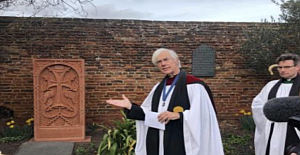 Member of Ataturk Society UK Betula Nelson writes about Canterbury Cathedral
Member of Ataturk Society UK Betula Nelson writes about Canterbury Cathedral A man with a sword was arrested for injuring at least five people,
A man with a sword was arrested for injuring at least five people,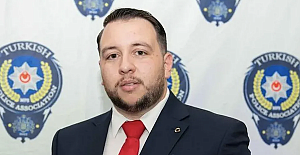 Off duty Police sergeant Eren Emin catch suspected thief while on stag do
Off duty Police sergeant Eren Emin catch suspected thief while on stag do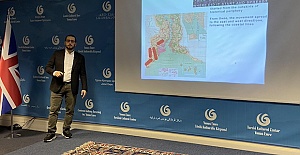 A Century of Urban Transformation, Istanbul’s Evolution
A Century of Urban Transformation, Istanbul’s Evolution English Premier League leaders Arsenal will visit title contenders
English Premier League leaders Arsenal will visit title contenders Liverpool meet Atalanta and West Ham face Bayer Leverkusen
Liverpool meet Atalanta and West Ham face Bayer Leverkusen Arsenal face Bayern Munich and Manchester City play Real Madrid
Arsenal face Bayern Munich and Manchester City play Real Madrid UK Transfer deadline day, the transfer window closes tonight
UK Transfer deadline day, the transfer window closes tonight Higher mortgage rates affect affordability as the cost of buying a home strains budgets
Higher mortgage rates affect affordability as the cost of buying a home strains budgets Islam Channel Business Awards 2024 have been announced
Islam Channel Business Awards 2024 have been announced Petrol prices on UK forecourts hit 150p a litre
Petrol prices on UK forecourts hit 150p a litre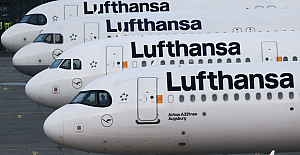 Europe's travel strikes: Flight and train disruption you can expect in April
Europe's travel strikes: Flight and train disruption you can expect in April


